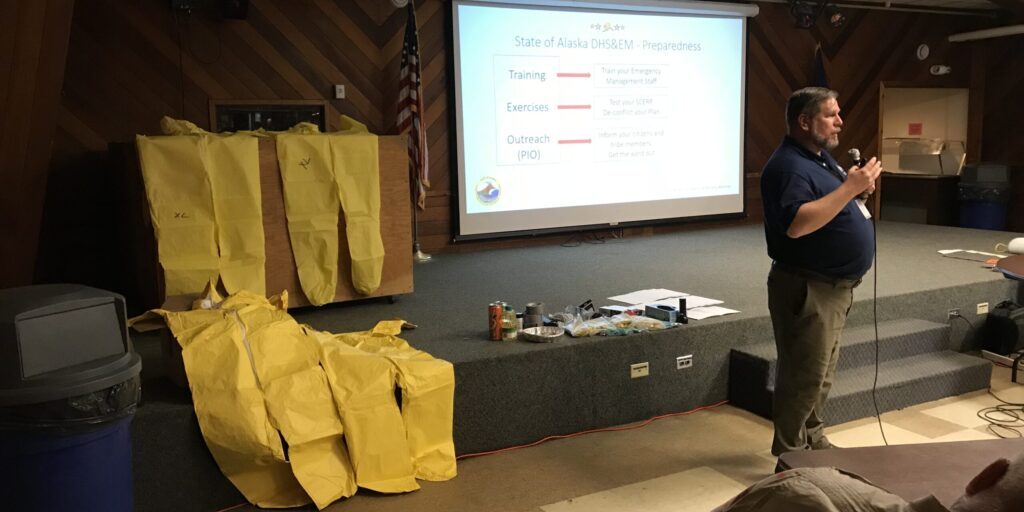The Alaska Division of Homeland Security and Emergency Management (DHSEM) is hosting a workshop in Nome this week to better prepare regional communities for emergency response.
Mike Sutton, the director of DHSEM in Alaska, says this rural resiliency workshop is one of three the state agency has held over the last two years. The idea for these gatherings, however, goes back more than a decade, to September 11, 2001, after which Alaska was given large quantities of grant funding to address state emergencies.
“Recently, after Governor Walker was elected and Lori Hummel was appointed as the DMVA commissioner, they both thought that the time was appropriate for us to turn our attention to focus on the local communities. And from our world, in the Division of Emergency Management, that’s where all the disasters were happening.”
This three-day gathering in the Bering Strait Region is an opportunity for DHSEM to connect with more rural communities across the state and discuss topics like oil spill response, Small Community Emergency Response Plans (SCERPS), and local residents’ concerns. At least two representatives from each regional community are in attendance for the workshop, and many of them have expressed concerns over local emergencies like fuel shortages, subsistence resources diminishing, and the length of time it takes state agencies to respond to places like Koyuk.

Paul Nelson, deputy director of DHSEM in Alaska, says that being off the road system exacerbates the challenges of emergencies in Western Alaska.
“‘Cause each small community may have a different priority or a different situation where they might have anything from flooding, to fall sea storms, winter storms, power outages, structure fires. I mean, it’s really all-encompassing. So, it’s important that each small community identifies what those community leaders feel is the most likely or the thing that will impact their community the most.”
As Sutton explains, the division has limited funds, and, during a disaster, can only repair structures or whatever was damaged to restore it to the condition it was in beforehand.
But there are other sources of money and grants that can provide more support for communities during emergencies and help prevent further damage.
“So, if you had a seawall, for instance, that this particular storm breached this one section of, we’ll fix that one section, but there could be other things on the sea wall that still need work. Well, that’s what the mitigation dollars do. They look forward to what we can do to strengthen the preventative measures that are in the community, from preventing that disaster from maybe happening, or preventing things from being as bad as they can be.”
According to Sutton, national statistics indicate that every mitigation dollar spent saves somewhere between $6 to $8 in disaster response money.
By developing partnerships and relationships between communities and state agencies, through workshops like the one currently happening in Nome, Sutton believes Bering Straits residents will be able to receive more support but also become even more resilient than they already are.
“Local residents have been here for a long time, and they know the hazards better than anyone else. They get through the storms, and what would be a category-2 hurricane with a name in the Lower 48 that has millions of dollars in response and disasters. Our local residents are prepared enough and tough enough, and they get through those things, they just shrug it off and say, ’well, that was Tuesday.’”
DHSEM’s Bering Strait rural resiliency workshop is being held at the Nome Mini Convention Center through 5pm Thursday. To get in touch with the state division, visit their website, or contact them 24/7, any day of the year, by calling the operations center: 1-800-478-2337 or 907 428-7100.
Image at top: a presentation during the DHSEM workshop at the Nome Mini Convention Center. Photo: Zoe Grueskin, KNOM (2018).




